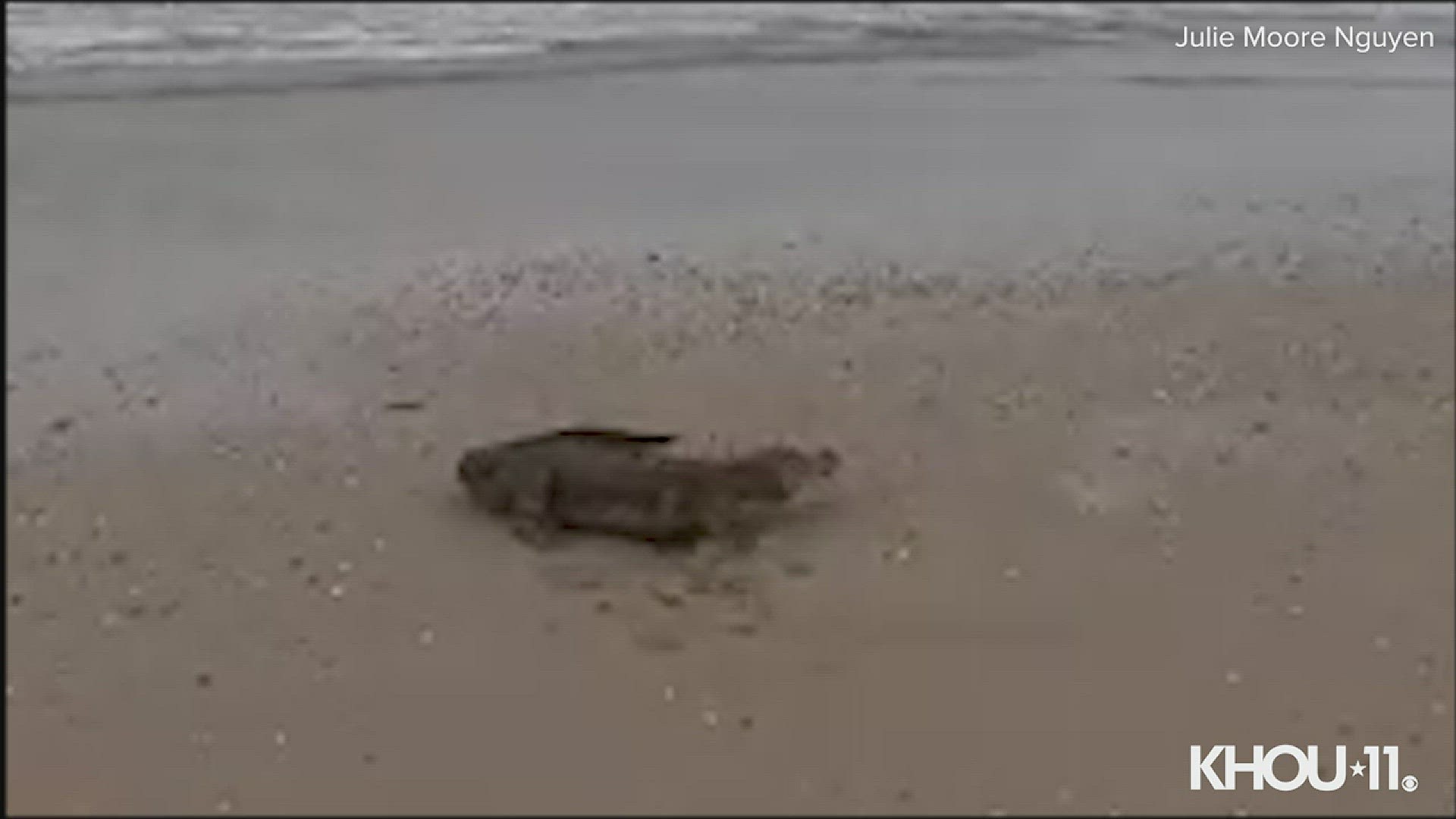BOLIVAR PENINSULA, Texas — Bolivar Peninsula is a popular spot for beachcombers and this time of year you might also see sea turtles or their nests.
Volunteers on the lookout for the tiny endangered turtles Tuesday spotted something much bigger: an alligator on the shore near the water!
Julie Moore Nguyen snapped a photo and got video of the gator and she said it appeared to be about 6 feet long.
"He was moving really slow. I tried to get closer and he started walking away," Nguyen said. "The turtle patrol came by and said he looks like he might be sick."
Alligators in the Gulf?
Experts say it's unusual but not unheard of. Alligators are freshwater animals, but they can tolerate salt water for up to a few days, according to the Gulf Center for Sea Turtle Research.
"Unlike their relatives the crocodiles, alligators don't have salt glands and therefore can't survive full-time in salt water," the National Science Foundation said on its website.
Ecologists there used radio transmitters to track the gators and their movements.
"They move back and forth between marine and freshwater ecosystems to rebalance their salt levels -- and to feed," NSF explained.
In recent years, other gators have been spotted on Bolivar, near Galveston's north jetty and on McFadden and Jamaica Beach.
Gators on Texas beaches
Texas Parks and Wildlife says gators are spotted along the Gulf Coast a couple of times a year.
Harvey Warren, a photographer in Beaumont, saw one in 2020 at McFaddin Beach, just north of Galveston. He estimated it to be a 6- to 7-foot alligator.
"Seemed to be kind of sunning himself, didn’t seem to be very aggressive," Warren told us.
"It’s not a concern as long as you keep your distance," Dr. Lene Peterson, a researcher with the Texas A&M Galveston Marine Biology Department, told us. “We want to understand whether that gradual change in freshwater habitats for the alligator -- will that eventually affect alligators over time?”
Peterson said her goal is to determine whether gators will adapt or move habitats as salinity increases in natural alligator territories from either storms or drought.
She said alligators could get pushed into more northern ranges of their traditional habitats.
There are two main reasons an alligator may be found in the ocean, Peterson said.
It could have been flushed out by floodwaters that moved it downriver or it's looking for food.
"These are foraging excursions that normally last a few hours and then they will return to their freshwater habitats," she said.
By traveling from one ecosystem to another, alligators ferry nutrients like nitrogen and phosphorus from place to place in the food they eat and excrete, NSF scientists explain.

